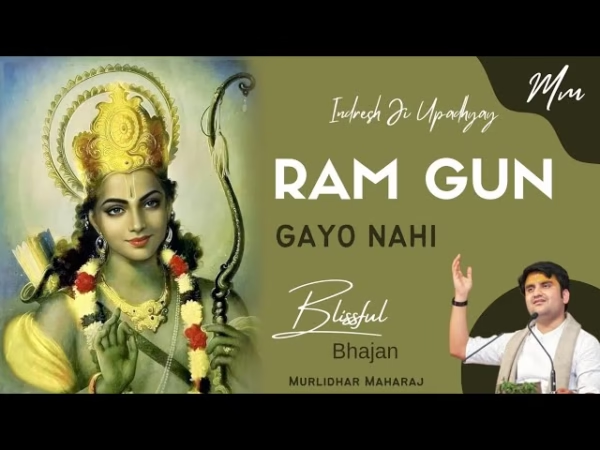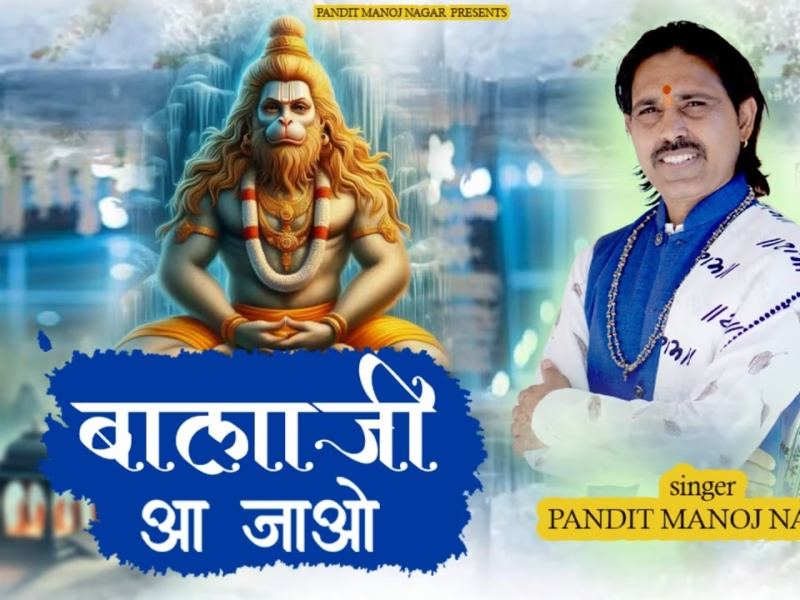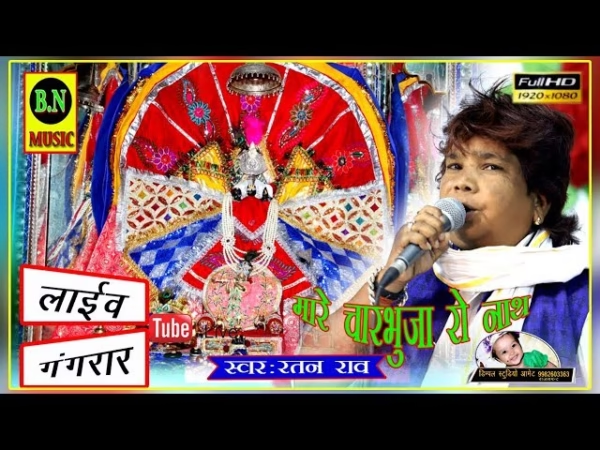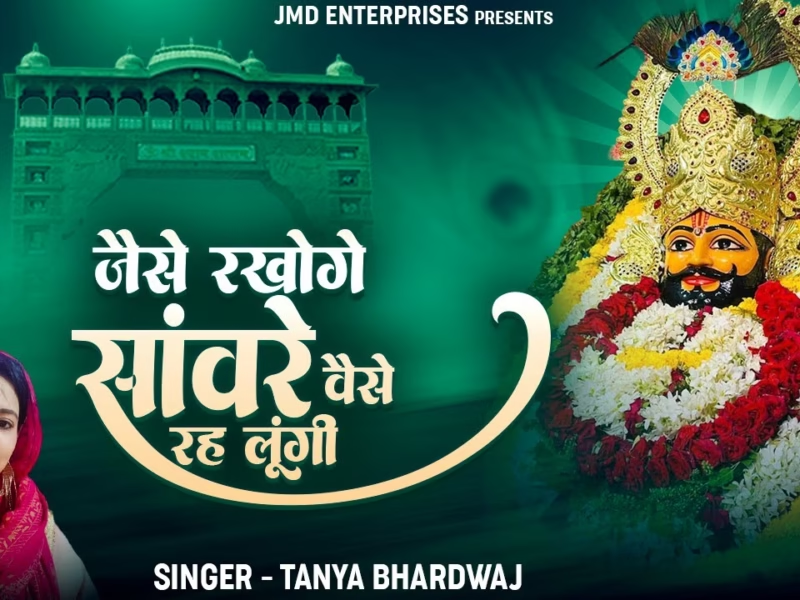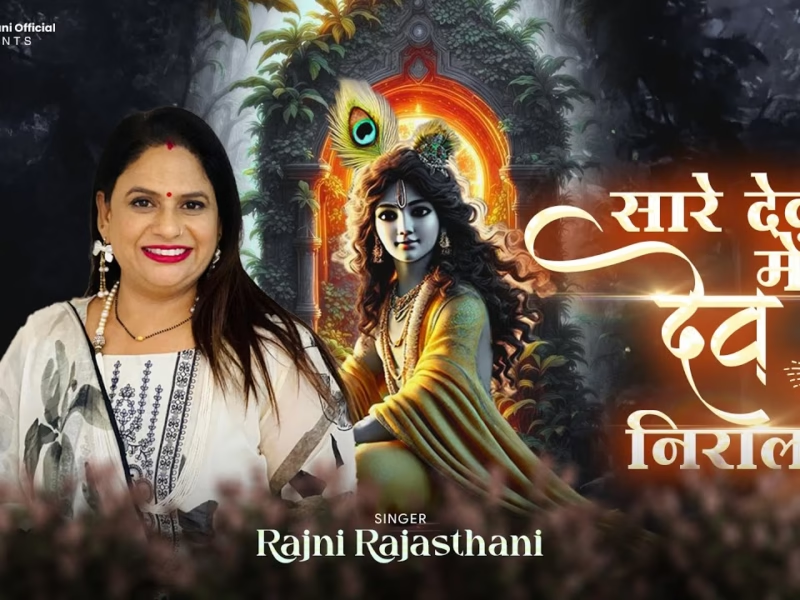ॐ तत्सदिति श्रीमद्भगवद्गीतासूपनिषत्सु ब्रह्मविद्यायां योगशास्त्रे
श्रीकृष्णार्जुनसंवादे ज्ञानकर्मसंन्यास योगो नाम चतुर्थोऽध्यायः ॥ 4॥
( सगुण भगवान का प्रभाव और कर्मयोग का विषय )
The Bhagawad Gita: Chapter IV
श्री भगवानुवाच- इमं विवस्वते योगं प्रोक्तवानहमव्ययम् । विवस्वान्मनवे प्राह मनुरिक्ष्वाकवेऽब्रवीत् ॥
The Supreme Lord Shree Krishna said: I taught this eternal science of Yog to the Sun-god, Vivasvan, who passed it on to Manu; and Manu in turn instructed it to Ikshvaku.
Chapter 4, Verse 2
एवं परम्पराप्राप्तमिमं राजर्षयो विदुः । स कालेनेह महता योगो नष्टः परन्तप ॥
O subduer of enemies, the saintly kings thus received this science of Yog in a continuous tradition. But with the long passage of time, it was lost to the world.
स एवायं मया तेऽद्य योगः प्रोक्तः पुरातनः । भक्तोऽसि मे सखा चेति रहस्यं ह्येतदुत्तमम् ॥
The same ancient knowledge of Yog, which is the supreme secret, I am today revealing unto you, because you are my friend as well as my devotee, who can understand this transcendental wisdom.
अर्जुन उवाच- अपरं भवतो जन्म परं जन्म विवस्वतः । कथमेतद्विजानीयां त्वमादौ प्रोक्तवानिति ॥
Arjun said: You were born much after Vivasvan. How am I to understand that in the beginning you instructed this science to him?O subduer of enemies, sacrifice performed in knowledge is superior to any mechanical material sacrifice. After all, O Parth, all sacrifices of work culminate in knowledge.
श्रीभगवानुवाच- बहूनि मे व्यतीतानि जन्मानि तव चार्जुन । तान्यहं वेद सर्वाणि न त्वं वेत्थ परन्तप ॥
The Supreme Lord said: Both you and I have had many births, O Arjun. You have forgotten them, while I remember them all, O Parantapa.
अजोऽपि सन्नव्ययात्मा भूतानामीश्वरोऽपि सन् । प्रकृतिं स्वामधिष्ठाय सम्भवाम्यात्ममायया ॥
Although I am unborn, the Lord of all living entities, and have an imperishable nature, yet I appear in this world by virtue of Yogmaya, my divine power.
यदा यदा हि धर्मस्य ग्लानिर्भवति भारत । अभ्युत्थानमधर्मस्य तदात्मानं सृजाम्यहम् ॥
Whenever there is a decline in righteousness and an increase in unrighteousness, O Arjun, at that time I manifest myself on earth.
O subduer of enemies, sacrifice performed in knowledge is superior to any mechanical material sacrifice. After all, O Parth, all sacrifices of work culminate in knowledge.
परित्राणाय साधूनां विनाशाय च दुष्कृताम् । धर्मसंस्थापनार्थाय सम्भवामि युगे युगे ॥
To protect the righteous, to annihilate the wicked, and to reestablish the principles of dharma I appear on this earth, age after age.
जन्म कर्म च मे दिव्यमेवं यो वेत्ति तत्वतः । त्यक्तवा देहं पुनर्जन्म नैति मामेति सोऽर्जुन ॥
Those who understand the divine nature of my birth and activities, O Arjun, upon leaving the body, do not have to take birth again, but come to my eternal abode.
वीतरागभय क्रोधा मन्मया मामुपाश्रिताः । बहवो ज्ञानतपसा पूता मद्भावमागताः ॥
Being freed from attachment, fear, and anger, becoming fully absorbed in me, and taking refuge in me, many persons in the past became purified by knowledge of me, and thus they attained my divine love.
ये यथा माँ प्रपद्यन्ते तांस्तथैव भजाम्यहम् । मम वर्त्मानुवर्तन्ते मनुष्याः पार्थ सर्वशः ॥
In whatever way people surrender unto me, I reciprocate with them accordingly. Everyone follows my path, knowingly or unknowingly, O son of Pritha.
काङ्क्षन्तः कर्मणां सिद्धिं यजन्त इह देवताः । क्षिप्रं हि मानुषे लोके सिद्धिर्भवति कर्मजा ॥
In this world, those desiring success in material activities worship the celestial gods, since material rewards manifest quickly
चातुर्वर्ण्यं मया सृष्टं गुणकर्मविभागशः । तस्य कर्तारमपि मां विद्धयकर्तारमव्ययम् ॥
The four categories of occupations were created by me according to people’s qualities and activities. Although I am the creator of this system, know me to be the non-doer and eternal.
न मां कर्माणि लिम्पन्ति न मे कर्मफले स्पृहा । इति मां योऽभिजानाति कर्मभिर्न स बध्यते ॥
Activities do not taint me, nor do I desire the fruits of action. One who knows me in this way is never bound by the karmic reactions of work.
एवं ज्ञात्वा कृतं कर्म पूर्वैरपि मुमुक्षुभिः । कुरु कर्मैव तस्मात्वं पूर्वैः पूर्वतरं कृतम् ॥
Knowing this truth, even seekers of liberation in ancient times performed actions. Therefore, following the footsteps of those ancient sages, you too should perform your duty.
किं कर्म किमकर्मेति कवयोऽप्यत्र मोहिताः । तत्ते कर्म प्रवक्ष्यामि यज्ज्ञात्वा मोक्ष्यसेऽशुभात्॥
What is action and what is inaction? Even the wise are confused in determining this. Now I shall explain to you the secret of action, by knowing which, you may free yourself from material bondage.
कर्मणो ह्यपि बोद्धव्यं बोद्धव्यं च विकर्मणः । अकर्मणश्च बोद्धव्यं गहना कर्मणो गतिः ॥
You must understand the nature of all three—recommended action, wrong action, and inaction. The truth about these is profound and difficult to understand.
कर्मण्य कर्म यः पश्येदकर्मणि च कर्म यः । स बुद्धिमान्मनुष्येषु स युक्तः कृत्स्नकर्मकृत् ॥
Those who see action in inaction and inaction in action are truly wise amongst humans. Although performing all kinds of actions, they are yogis and masters of all their actions.
यस्य सर्वे समारम्भाः कामसंकल्पवर्जिताः । ज्ञानाग्निदग्धकर्माणं तमाहुः पंडितं बुधाः ॥
The enlightened sages call those persons wise, whose every action is free from the desire for material pleasures and who have burnt the reactions of work in the fire of divine knowledge.
त्यक्त्वा कर्मफलासङ्गं नित्यतृप्तो निराश्रयः । कर्मण्यभिप्रवृत्तोऽपि नैव किंचित्करोति सः ॥
Such people, having given up attachment to the fruits of their actions, are always satisfied and not dependent on external things. Despite engaging in activities, they do not do anything at all.
निराशीर्यतचित्तात्मा त्यक्तसर्वपरिग्रहः । शारीरं केवलं कर्म कुर्वन्नाप्नोति किल्बिषम् ॥
Free from expectations and the sense of ownership, with mind and intellect fully controlled, they incur no sin, even though performing actions by one’s body.
यदृच्छालाभसंतुष्टो द्वंद्वातीतो विमत्सरः । समः सिद्धावसिद्धौ च कृत्वापि न निबध्यते ॥
Content with whatever gain comes of its own accord, and free from envy, they are beyond the dualities of life. Being equipoised in success and failure, they are not bound by their actions, even while performing all kinds of activities.
गतसङ्गस्य मुक्तस्य ज्ञानावस्थितचेतसः । यज्ञायाचरतः कर्म समग्रं प्रविलीयते ॥
They are released from the bondage of material attachments and their intellect is established in divine knowledge. Since they perform all actions as a sacrifice (to God), they are freed from all karmic reactions.
ब्रह्मार्पणं ब्रह्म हविर्ब्रह्माग्रौ ब्रह्मणा हुतम् । ब्रह्मैव तेन गन्तव्यं ब्रह्मकर्मसमाधिना ॥
For those who are completely absorbed in God-consciousness, the oblation is Brahman, the ladle with which it is offered is Brahman, the act of offering is Brahman, and the sacrificial fire is also Brahman. Such persons, who view everything as God, easily attain him.
दैवमेवापरे यज्ञं योगिनः पर्युपासते । ब्रह्माग्नावपरे यज्ञं यज्ञेनैवोपजुह्वति ॥
Some yogis worship the celestial gods with material offerings unto them. OthO subduer of enemies, sacrifice performed in knowledge is superior to any mechanical material sacrifice. After all, O Parth, all sacrifices of work culminate in knowledge.ers worship perfectly who offer the self as sacrifice in the fire of the Supreme Truth.
श्रोत्रादीनीन्द्रियाण्यन्ये संयमाग्निषु जुह्वति। शब्दादीन्विषयानन्य इन्द्रियाग्निषु जुह्वति ॥
Others offer hearing and other senses in the sacrificial fire of restraint. Still others offer sound and other objects of the senses as sacrifice in the fire of the senses.
सर्वाणीन्द्रियकर्माणि प्राणकर्माणि चापरे । आत्मसंयमयोगाग्नौ जुह्वति ज्ञानदीपिते ॥
Some, inspired by knowledge, offer the functions of all their senses and their life energy in the fire of the controlled mind.
द्रव्ययज्ञास्तपोयज्ञा योगयज्ञास्तथापरे । स्वाध्यायज्ञानयज्ञाश्च यतयः संशितव्रताः ॥
Some offer their wealth as sacrifice, while others offer severe austerities as sacrifice. Some practice the eight-fold path of yogic practices, and yet others study the scriptures and cultivate knowledge as sacrifice, while observing strict vows.
अपाने जुह्वति प्राणं प्राणेऽपानं तथापरे । प्राणापानगती रुद्ध्वा प्राणायामपरायणाः ॥
Still others offer as sacrifice the outgoing breath in the incoming breath, while some offer the incoming breath into the outgoing breath. Some arduously practice prāṇāyām and restrain the incoming and outgoing breaths, purely absorbed in the regulation of the life-energy.
अपरे नियताहाराः प्राणान्प्राणेषु जुह्वति । सर्वेऽप्येते यज्ञविदो यज्ञक्षपितकल्मषाः ॥
Yet others curtail their food intake and offer the breath into the life-energy as sacrifice. All these knowers of sacrifice are cleansed of their impurities as a result of such performances.
यज्ञशिष्टामृतभुजो यान्ति ब्रह्म सनातनम् । नायं लोकोऽस्त्ययज्ञस्य कुतोऽन्यः कुरुसत्तम ॥
Those who know the secret of sacrifice, and engaging in it, partake of its remnants that are like nectar, advance toward the Absolute Truth. O best of the Kurus, those who perform no sacrifice find no happiness either in this world or the next.
एवं बहुविधा यज्ञा वितता ब्रह्मणो मुखे । कर्मजान्विद्धि तान्सर्वानेवं ज्ञात्वा विमोक्ष्यसे ॥
All these different kinds of sacrifice have been described in the Vedas. Know them as originating from different types of work; this understanding cuts the knots of material bondage.
( ज्ञान की महिमा )श्रेयान्द्रव्यमयाद्यज्ञाज्ज्ञानयज्ञः परन्तप । सर्वं कर्माखिलं पार्थ ज्ञाने परिसमाप्यते ॥
O subduer of enemies, sacrifice performed in knowledge is superior to any mechanical material sacrifice. After all, O Parth, all sacrifices of work culminate in knowledge.
तद्विद्धि प्रणिपातेन परिप्रश्नेन सेवया । उपदेक्ष्यन्ति ते ज्ञानं ज्ञानिनस्तत्वदर्शिनः ॥
Learn the Truth by approaching a spiritual master. Inquire from him with reverence and render service unto him. Such an enlightened Saint can impart knowledge unto you because he has seen the Truth.
यज्ज्ञात्वा न पुनर्मोहमेवं यास्यसि पाण्डव । येन भुतान्यशेषेण द्रक्ष्यस्यात्मन्यथो मयि ॥
Following this path and having achieved enlightenment from a Guru, O Arjun, you will no longer fall into delusion. In the light of that knowledge, you will see that all living beings are but parts of the Supreme, and are within me.
अपि चेदसि पापेभ्यः सर्वेभ्यः पापकृत्तमः । सर्वं ज्ञानप्लवेनैव वृजिनं सन्तरिष्यसि ॥
Even those who are considered the most immoral of all sinners can cross over this ocean of material existence by seating themselves in the boat of divine knowledge.
यथैधांसि समिद्धोऽग्निर्भस्मसात्कुरुतेऽर्जुन । ज्ञानाग्निः सर्वकर्माणि भस्मसात्कुरुते तथा ॥
As a kindled fire reduces wood to ashes, O Arjun, so does the fire of knowledge burn to ashes all reactions from material activities.
न हि ज्ञानेन सदृशं पवित्रमिह विद्यते । तत्स्वयं योगसंसिद्धः कालेनात्मनि विन्दति ॥
In this world, there is nothing as purifying as divine knowledge. One who has attained purity of mind through prolonged practice of Yog, receives such knowledge within the heart, in due course of time.
श्रद्धावाँल्लभते ज्ञानं तत्परः संयतेन्द्रियः । ज्ञानं लब्धवा परां शान्तिमचिरेणाधिगच्छति ॥
Those whose faith is deep and who have practiced controlling their mind and senses attain divine knowledge. Through such transcendental knowledge, they quickly attain everlasting supreme peace.
अज्ञश्चश्रद्दधानश्च संशयात्मा विनश्यति । नायं लोकोऽस्ति न परो न सुखं संशयात्मनः ॥
But persons who possess neither faith nor knowledge, and who are of a doubting nature, suffer a downfall. For the skeptical souls, there is no happiness either in this world or the next.
योगसन्नयस्तकर्माणं ज्ञानसञ्न्निसंशयम् । आत्मवन्तं न कर्माणि निबध्नन्ति धनञ्जय ॥
O Arjun, actions do not bind those who have renounced karm in the fire of Yog, whose doubts have been dispelled by knowledge, and who are situated in knowledge of the self.
तस्मादज्ञानसम्भूतं हृत्स्थं ज्ञानासिनात्मनः । छित्वैनं संशयं योगमातिष्ठोत्तिष्ठ भारत ॥
Therefore, with the sword of knowledge, cut asunder the doubts that have arisen in your heart. O scion of Bharat, establish yourself in karm yog. Arise, stand up, and take action!


